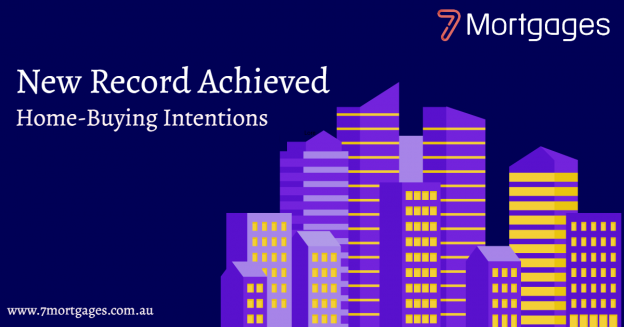Buying a home is a major goal for many people, but rising property prices can make it difficult to save for a deposit. Fortunately, there are ways to enter the property market without paying a large price upfront. If you’ve been wondering, “How can I buy a house without a deposit?” or “How to get a mortgage without a deposit?”, this blog will explore your options, particularly in Melbourne’s competitive market.

Understanding No-deposit Home Loans
Most traditional home loans require a deposit of between 5% and 20% of the property’s purchase price as a down payment. However, other alternatives don’t require prepayment. No-deposit home loans are designed for buyers who may not have enough for a deposit but still have the financial capability to repay a mortgage.
That being said, finding 100% no-deposit loans are difficult to find these days. Therefore, we’ve listed other popular options to secure a property without paying a large deposit upfront below.
-
Guarantor Loans
Guarantor loans are the preferred alternative for those looking to buy a home without the traditional deposit. Here, a family member—usually a parent—uses their property as security for your loan. Such mortgages let you borrow up to 100% of the purchase price, removing the need for a deposit.
-
Pros:
- No deposit is required
- You avoid Lenders’ Mortgage Insurance (LMI) costs
- Faster homeownership without years of saving
-
Cons:
- Puts financial pressure on the guarantor
- If you default, the guarantor’s property is at risk
-
-
First Home Owner Grants and Government Schemes
The Australian government also offers many first-home buyer schemes that can significantly reduce the deposit required. These include:
-
First Home Owner Grant (FHOG)
Eligible first-time buyers in Victoria can receive a $10,000 grant for purchasing a new home. This also applies if you’re building a new house worth $75,000 or less.
-
First Home Guarantee (Formerly FHLDS)
This initiative allows eligible first-home buyers to purchase a property with deposits as low as 5%, minus LMI.
-
Victorian Homebuyer Fund
It is a shared equity scheme where the government contributes up to 25% of the property value, reducing the amount you need to borrow. Like the First Home Guarantee, it brings the payable deposit down to 5%.
-
-
Low Deposit Home Loans
If a no-deposit loan is out of the question, consider a low-deposit home loan. Some lenders offer first-home buyers mortgages with deposits as low as 5%.
-
-
Key Considerations:
- You may still need to pay Lenders Mortgage Insurance (LMI)
- Interest rates may be higher than standard loans
- A strong credit history and stable income are required
-
-
-
Using Your Superannuation
The First Home Super Saver Scheme (FHSSS) allows first-home buyers to withdraw voluntary super contributions (up to $50,000) to use as a home deposit. This can be an effective way to save for a property while benefiting from tax breaks.
-
-
Pros
- Boosts savings faster
- Tax benefits make saving more efficient
-
Cons
- Superannuation funds are meant for retirement
- Limited to voluntary contributions only
-
-
-
Buying with a family member or partner
If you’re struggling to buy on your own, consider co-buying with a partner, sibling, family or close friends. This allows you to combine savings and income, making it easier to qualify for home loans with lower deposit requirements.
-
-
Things to Consider
- Have a legal agreement in place to outline ownership percentages
- Be clear about financial responsibilities and exit strategies
-
-
-
Rent-to-own Agreements
Last but not least, you have the option of a rent-to-own or vendor finance agreement. This allows you to rent a home with the option to buy it later on. How it works is a portion of your rent goes toward the property purchase.
-
-
Pros
- No large deposit is required upfront
- Builds equity while renting
-
Cons
- Higher costs than traditional methods
- Risk of losing payments if you don’t purchase
-
-

Tips for Quick Home Loan Approvals
If you’re pursuing no-deposit or low-deposit home loans, here’s how to improve your chances of approval:
-
Improve Your Credit Score
Lenders favour borrowers with a strong credit history. Therefore, you should pay attention to improving your credit score by making on-time payments, reducing debt, and avoiding excessive credit applications.
-
Have Stable Employment
A consistent income shows lenders your ability to repay. Make sure your employment details are made available as and when required.
-
Reduce Existing Debts
Pay off personal loans and credit card debt to improve your borrowing ability.
-
Show Savings and Good Financial Habits:
Even if you do not have enough for a full deposit, demonstrating responsible financial habits can help you land a good deal.
Buy Your Dream Home Today: Consult the Experts at 7 Mortgages
Saving up for a traditional deposit can be tough. Fortunately, there are multiple options for buying a home without one. Whether it’s through a guarantor loan, government support, a low-deposit home loan, or other strategies, buyers have several options to get into the property market.
Before committing to a no-deposit mortgage, consult our experts to find the right solution for your situation. 7 Mortgages is a leading mortgage broker in Melbourne, with access to various packages. We make home ownership affordable and more accessible to all buyers. So, don’t worry about large upfront deposits. Instead, call us on 03 9544 2642 / 0413 277 413 or email us at admin@7mortgages.com.au to find out how we can help.









 2. No Fees (99% of the time):
2. No Fees (99% of the time): 